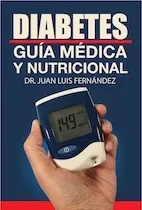The incretins are hormones secreted by intestines in response to a meal, which stimulate the production of insulin and inhibit the glucagon .Therefore, they play an important role in the control of blood glucose (blood glucose).
The main incredine hormones are: the LPG-1 (peptide similar to glucagon-1, for its acronym in English) and the gip (glucose-dependent insulinotropic peptide).
"My diabetes ebook"
Physiological aspects of incredines
Intestin-pancreas axis and glycemia control
Incredines are hormones synthesized by endocrine cells of the intestines, and that are released after the intake of a meal.Its main physiological effect is to increase the production of insulin by the beta cells of the pancreas.The LPG-1, in addition, inhibits the release of glucagon (Rev Med mediaInst Mex Sure SOC) for the alpha cells of the same organ. An important characteristic of these substances is that they only act when blood glucose is high.Its main effect is, therefore, to prevent postprandial blood glucose (after meals) to rise too much. The hormones incredine are secreted and released towards the bloodstream by the presence of food, especially carbohydrates, in the intestines.This phenomenon is observed to a lesser extent after the administration of glucose by intravenous route. After being released by the intestines to the bloodstream, the incredines reach all body tissues, producing several effects: The activity of incredine hormones in the tissues is short-lived, since they are neutralized by an enzyme called dpp-4 ( dipeptidil peptidase 4 ). The incredine effect refers to the greater insulin secretion observed after the administration of glucose by the oral route compared to that observed after the infusion of the same amount of glucose by wayendovenous (J of the soc for biomedical diabetes res) . In healthy people, the incredin effect represents until 70% of insulin secretion in response to a meal. Patients with type 2 diabetes have a Decreased increasing effect .This translates into a decrease in insulin release by the beta cells of the pancreas and an increase in glucagon by alpha cells, which contributes to the postprandial hyperglycemia .This is the first observable biochemical alteration in type 2 diabetes. Then the fasting hyperglycemia ensures . As we have seen in this article, incredine hormones play an important role in the proper functioning of alpha and beta cells of the pancreas, producers of glucagon and insulin hormones, which in turn are responsible for maintaining glucose levelsblood within physiological limits. These properties have been used by the pharmaceutical industry, which in recent years has introduced effective medications for both the treatment of obesity and diabetes .
© Christos Georghiou, 123rf ” What causes increased incredine secretion?
How do incredines act?
1.In the pancreas, both GLP-1 and GIP stimulate beta cells to increase insulin production.The LPG-1 also inhibits glucagon secretion.
2. In the stomach, the GLP-1 slows gastric emptying, which decreases postprandial blood glucose and appetite.
3. In the brain, the LPG-1 produces central decrease in appetite
Inactivation of incredine hormones
INCRETINE EFFECT
Incredines in type 2 diabetes
Conclusion

